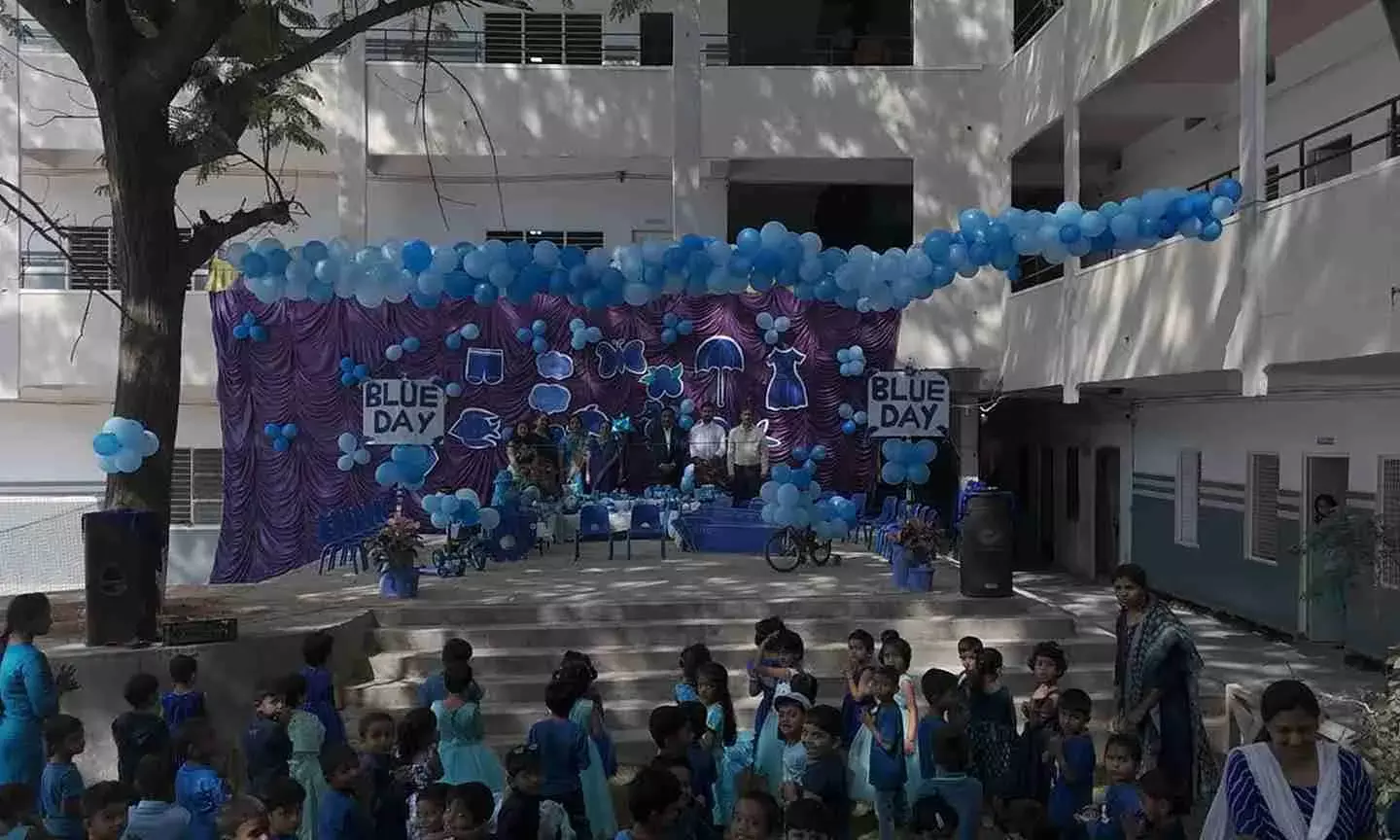Essential Learning Skills for Kindergarten Kids to Tackle Tomorrow’s Challenges
In a fast-changing, technology-driven world of innovation and global connection, the beginning of success is early, far earlier than we ever expect. The purpose of today’s kindergarten isn’t only learning the ABCs or 123s…children have to know more than the basics and be adaptable and creative; kids need to have the skills to work in groups, think critically, and solve problems.
At MNR Scottsdale, as the best school in Hyderabad, we believe that early childhood is about: Not just early learning; It is a vital window when children's minds develop and society is shaped. It's more than child's play; It is that maical opportunity when younger kids are building lifelong habits, emotional intelligence, and creative, imaginative thinking to mold future leaders and innovators.
Here’s a closer look at some essential skills that all preschool or kindergarten children should be taught to succeed in their future years:
1. Communication Skills – How to Speak Up With Confidence
The ability to speak, listen actively, and understand others is fundamental. In the classroom, at home, or in the playground, effective communication allows children to express emotions, ask questions, and build relationships.
How we encourage it:
1. Storytelling sessions
2 . Role-play and group activities
3. Language-rich classrooms
2. Emotional Intelligence – Understanding Feelings
Teaching kids to recognise their emotions and regulate them is a game-changer. Their emotional intelligence (EQ) prepares them to deal with failure, resolve conflicts, and foster empathy, three must-have traits for future success.
How we encourage it:
1. Daily mindfulness moments
2. Emotion cards and activities
3. Teacher-guided conversations on feelings
3. Creativity and Imagination – Think Outside the Box
Kids are always inquisitive and it is essential that we foster inquisitiveness among them. Imaginative children become better problem solvers and are more flexible when problem-solving, qualities that will be important in the new world.
How we encourage it:
1. Art, craft, and free play activities
2. Story-building and puppetry
3. Open-ended questions during lessons
4. Critical Thinking – Learning to Ask 'Why?'
Even young children in kindergarten can be taught to think for themselves, look at situations critically, and ask meaningful questions. These are skills that will be valuable in the future when solving problems will be infinitely more valuable than memorizing facts.
How we encourage it:
1. Puzzles, games, and sorting activities
2. Simple science experiments
3. Hands-on learning and observation tasks
5. Collaboration – Learning To Play With Others
This is a world that has taught me the value of teamwork, and I believe that teaching children to work together, share and compromise is priceless. These interpersonal skills result in better relationships and more flexibility.
How we encourage it:
1. Pair work and group games
2. Circle time discussions
3. Cooperative storytelling and classroom chores
6. Resilience – Building the Never-Give-Up Attitude
If that’s the case, people are preparing the youngster for life and all the adversity that comes with it. Kindergarten is the ideal time to teach students that mistakes are O.K., and that trying again is how we learn and grow.
How we encourage it:
1. Praise for effort, not just success
2. Stories of perseverance and heroes
3. Encouraging risk-taking in safe ways
7. Digital Literacy – Smart Use of Tech Tools
Now, even young children are exposed to screens and devices these days. Helping them understand how to use tech responsibly and with balance is key for learning, but also safety and development.
How we encourage it:
1. Limited screen-based activities that promote learning
2. Parental workshops on digital balance
3. Introducing interactive smartboards with supervision
8. Motor Skills (movement and coordination)
Fine and gross motor skills are important for everything from writing to sports. Coordination-enhancing activities also boost focus and classroom readiness.
How we encourage it:
1. Play-based learning (building blocks, clay, outdoor games)
2. Yoga and physical education
3. Dance and rhythm sessions
At MNR Scottsdale, one of the best CBSE schools in Hyderabad, we move beyond books to make sure our kindergarten students are not only academically inclined but emotionally intelligent, physically active, socially skilled, and future-ready.
Our play-based, technology-integrated curriculum, for children ages 1.5-12, fosters independence, confidence, and a lifelong love of learning, so that each child can make the most of their unique potential.
Apply Now for 2025-2026 Admissions
Secure your child’s future with quality education and a nurturing environment.

